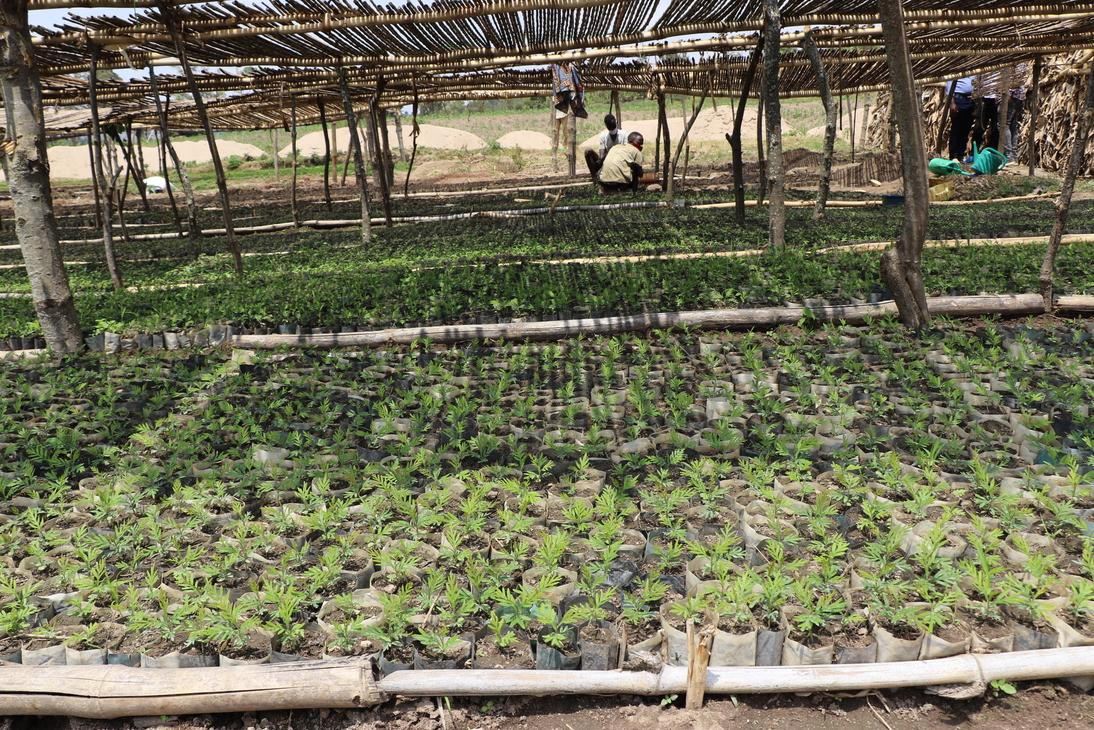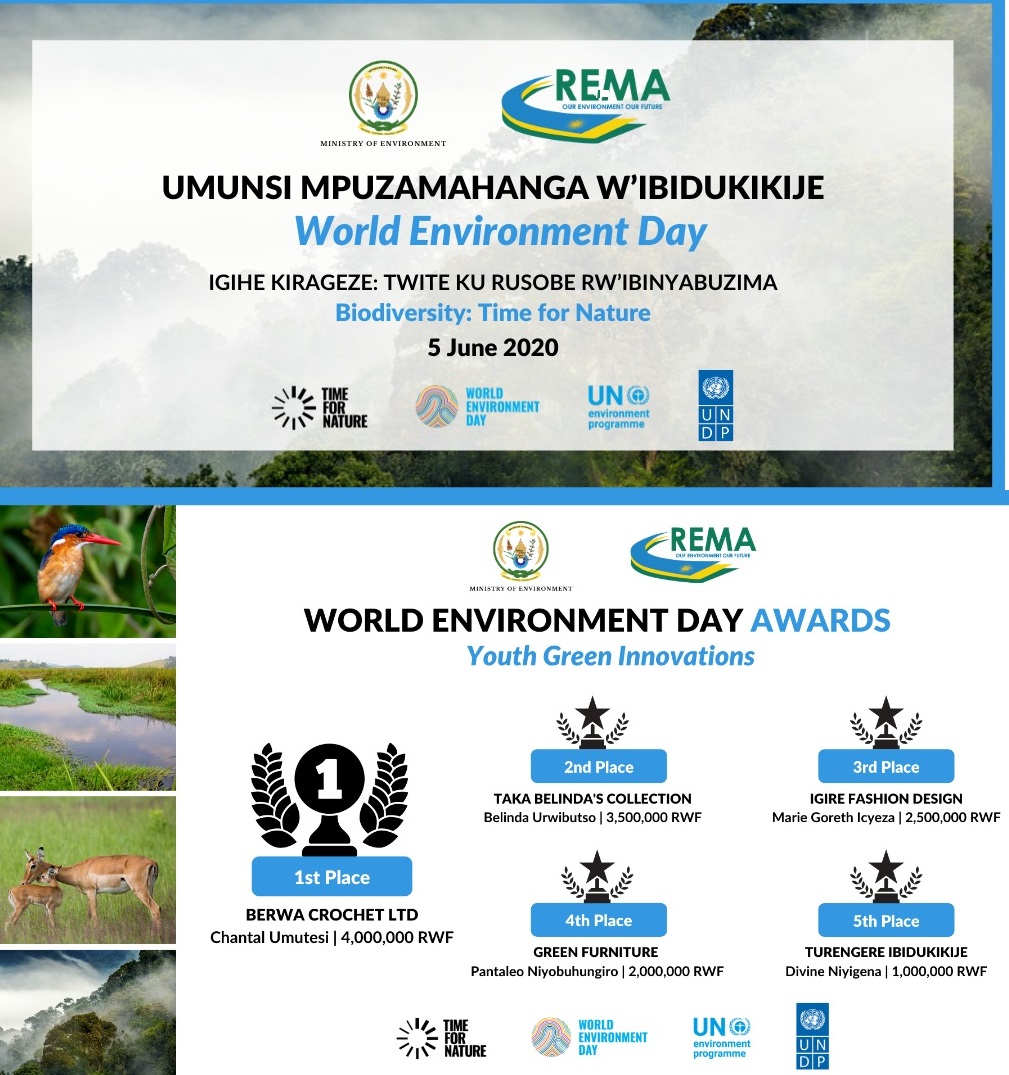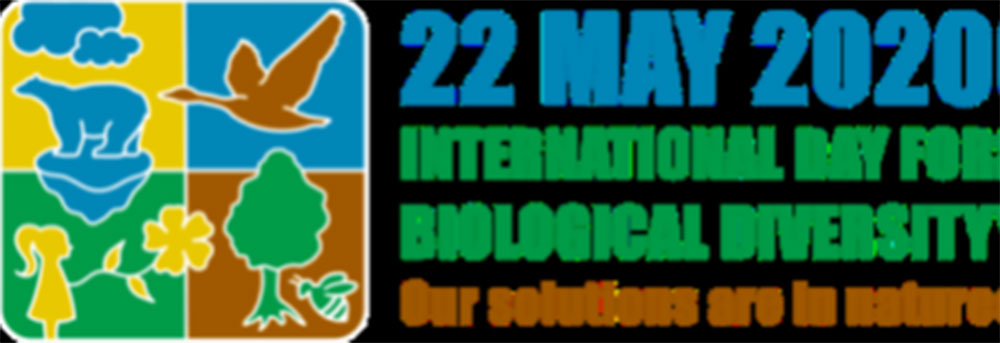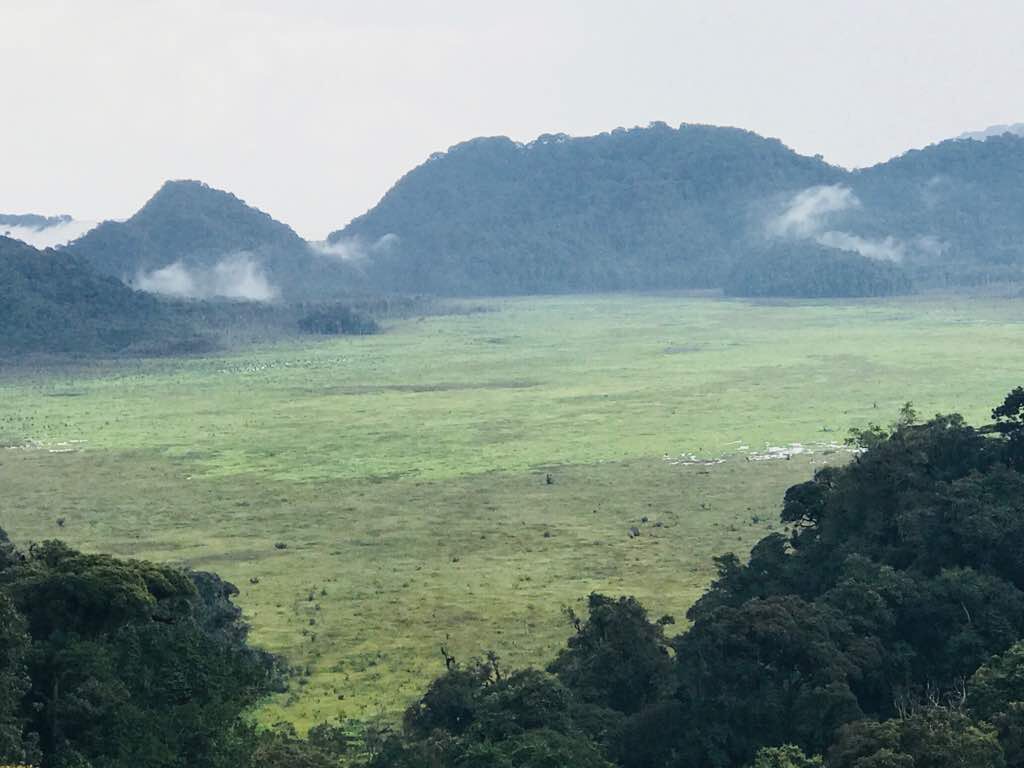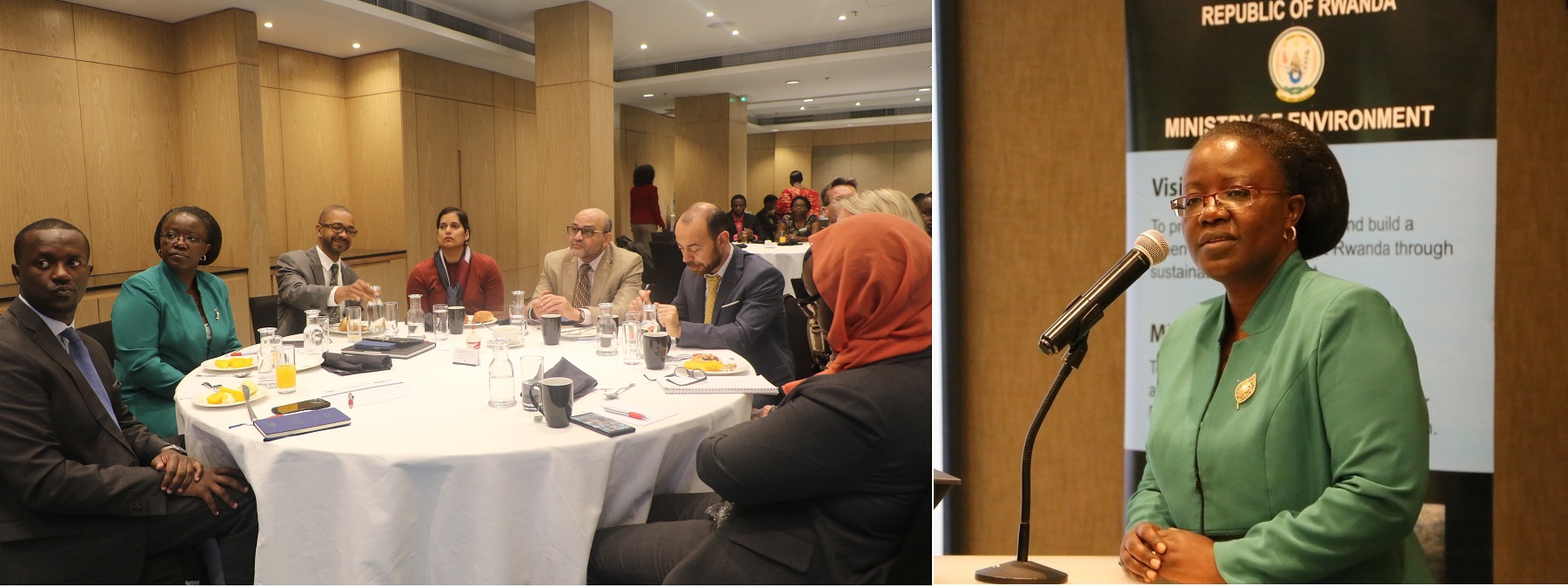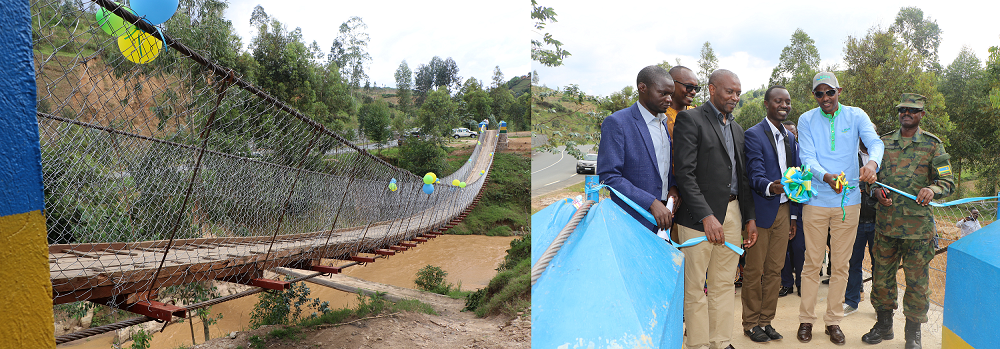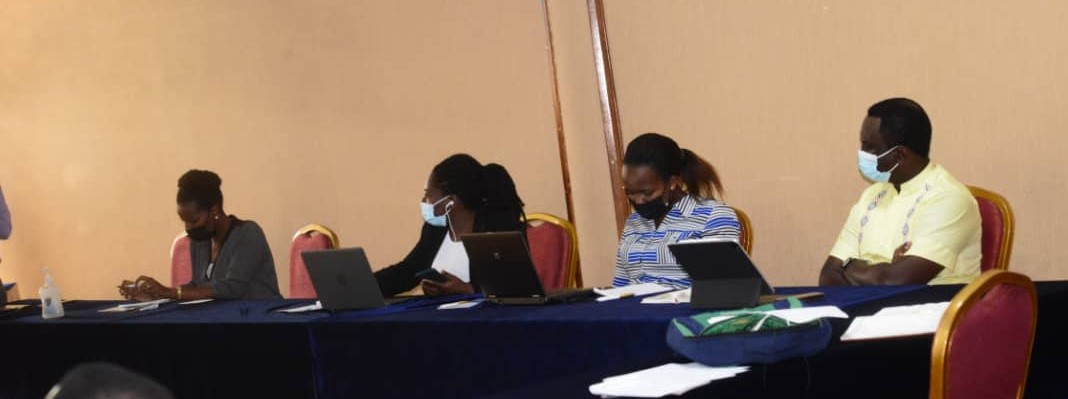
Rwanda launches project to protect human health and the environment from the adverse effects of mercury pollution
The Rwanda Environment Management Authority (REMA), has launched the Minamata Initial Assessment (MIA) and National Action Plan (NAP) Projects.
Both projects were launched on June8, 2021 in line with the Minamata Convention on mercury, designed to protect human health and the environment from anthropogenic emissions and release of mercury and mercury compounds, that Rwanda acceded in June 2017.
Mercury is a naturally occurring element that is found in air, water and soil. Exposure to mercury – even small amounts – may cause serious health problems and is a threat to the development of the child before and after birth.
According to the World Health Organization (WHO), the inhaling mercury vapour can have harmful effects on the nervous, digestive and immune systems, lungs, kidneys and skin, and may be fatal. The inorganic salts of mercury are corrosive to the skin, eyes and gastrointestinal tract, and may induce kidney toxicity if ingested.
After becoming a part to Minamata Convention, Rwanda conducted a preliminary national survey to map out different institutions and priority areas suspected to have mercury, and mercury pollution, and these include Artisanal and Small-Scale Gold Mining (ASGM), health sector (thermometers, tensiometers, dental amalgams), industry sector (butchery, paints) among others.
“The MIA is one of the solutions that will help us to evaluate ourselves throughout national mercury inventory used in Artisanal and Small-Scale Gold mining as well as in health sector. However, NAP will help us to have health status of the people working with these sectors and put in place the alternative technology aiming at phasing out the use of mercury” says Juliet Kabera, Director General, Rwanda Environment Management Authority (REMA).
The Minamata Initial Assessment project will raise awareness of health risks associated with mercury among the general public and government officials.
The artisanal and small-scale gold mining sector, along with health, ICT, Transport, water and informal sectors were identified as priority sectors related to the use of mercury.
The development of National Action Plans for artisanal and small-scale gold mining is a requirement under the Minamata Convention. Therefore, this project will support Rwanda to improve national capacity for managing mercury, and reduce the exposure of the people to mercury and the associated negative health consequences.
The two initiatives are being supported by the United Nations Industrial Development Organization (UNIDO) and the United Nations Institute for Training and Research (UNITAR).
The Minamata Convention has a phased approach to reduce, and where possible, eliminate mercury use in key industrial sectors. It is also designed to systematically reduce emissions and releases to land and water and phase out the use of mercury where alternatives exist.
The Minamata Convention was adopted and opened for signature at the Conference of Plenipotentiaries held from 9 to 11 October 2013 in Minamata and Kumamoto, Japan and entered into force on 16 August 2017. Up to June 2018, 128 countries had signed the treaty and 94 had ratified it. As for now, 131 country have ratified the treaty and Rwanda became a Party on 29 June 2017.
To support the state parties to achieve the objective of the Convention, the Global Environment Facility (GEF) avails financial support to keep the momentum of making mercury history.
Topics
More posts
Umushinga FLR (Mayaga Project) ugiye gutera ibiti bisaga miriyoni mu gace k’Amayaga mu 2020/2021
Umushinga Forest Landscape Restoration (FLR Mayaga) ukorera mu kigo cy’igihugu cyita ku bidukikije (REMA) ugiye gutera ibiti bibarirwa muri 1,375,792…
What is the Progress on the Development of Nyandungu Eco-Tourism Park Project?
In May 2016, Rwanda Environment Management Authority (REMA) signed a five years’ project implementation agreement up to 2021 with Rwanda Green Fund…
Rwanda commits to a green recovery on World Environment Day
At this year’s World Environment Day celebration, Rwanda has committed to a green, sustainable recovery as the country manages the impacts of the…
Abanyarwanda barakangurirwa kubungabunga urusobe rw’ ibinyabuzima
Buri mwaka, ku wa 05 Kamena isi yose yizihiza Umunsi Mpuzamahanga w’Ibidukikije. Mu Rwanda bimaze kuba umuco ko uyu munsi ubanzirizwa n’icyumweru…
International Day for Biological Diversity 2020
We are celebrating the International Day for Biological Diversity (IDB) on 22 May 2020, under the theme is "Our solutions are in nature". The United…
World Wetlands Day Focuses on Biodiversity
Kigali, 31 January, 2020 - Rwanda celebrated World Wetlands Day on 31 January, 2020 with conference aimed to showcase studies conducted on wetlands…
Rwandans Urged to Stand Committed to Conserving Wetlands
Kigali | 30 January 2022 - Every year, Rwanda joins the world in commemoration of the World Wetlands Day (WWD), celebrated on 2nd February with the…
ENR Sector and Development Partners meet to Discuss on Mainstreaming of Environment and Natural Resources Management in Development Programmes
The Environment and natural resources sector has yesterday met with development partners in a high level breakfast meeting to discuss on continued…
Ngororero: Two Pedestrian Bridges Inaugurated to Support Community Climate Resilience
Two Suspended pedestrian bridges were yesterday inaugurated in Ngororero District to solve rural isolation that has been affecting the community…
